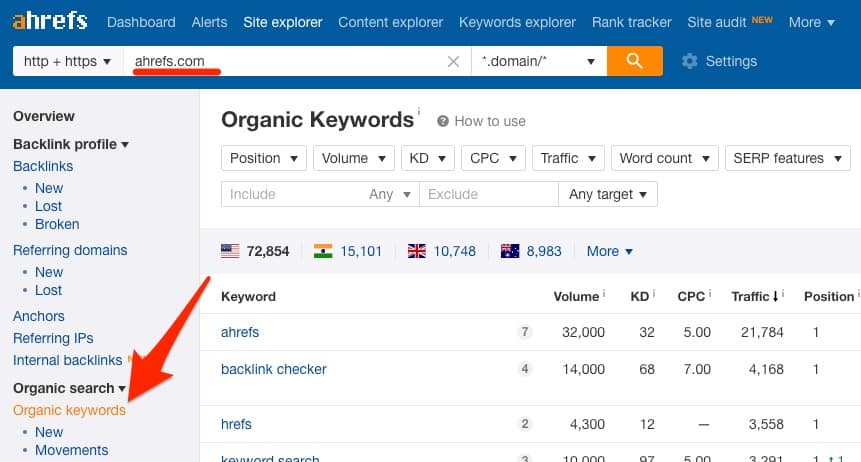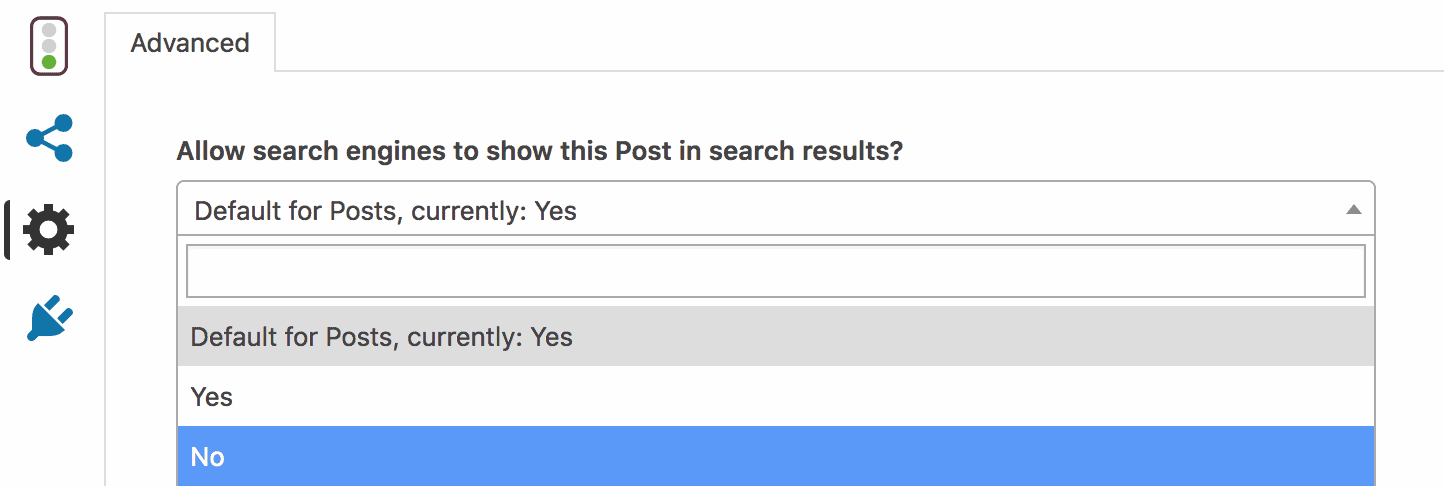Cannibalization of keywords |What does it mean and how do we avoid it?
Cannibalization of keywords has always been an acute problem for SEO specialists. Following the audit sessions we perform at the beginning of each new collaboration with a client, we find that the site is self-sabotaging, bringing a deficit of traffic and, of course, conversions.
In the following, we will find out together what exactly the SEO cannibalization process entails, how we can identify it and what needs to be done to end it.
What is keyword cannibalization?
There is generally a myth that the more pages in a site that target the same keyword, the higher the site’s indexing position in Google for that phrase. Nothing further from the truth! The effect is, on the contrary, at the opposite pole and translates into the occurrence of the cannibalization phenomenon.
All the pages of your site that are optimized on the same key structure enter a competition for supremacy, and the loser in this whole equation is your business. The name of the phenomenon suggests precisely the idea of self-sabotage, of “cannibalization” of one’s own results. The visibility, click-through rate (CTR) and even conversion rate are split between two or more pages. As a result, instead of having a strong page, indexed on the top positions in the Google results list, you will have two or more pages, in lower positions, where they receive limited attention or are completely ignored by potential customers.
Although, most of the time, the effects of keyword cannibalization are visible and have a negative impact on the visibility and overall level of performance of a page, there are cases where the phenomenon can even bring you an advantage. We must keep in mind, however, that these situations require constant monitoring.
Beneficial cannibalization
If two pages of the same site are displayed in the top two positions in search engine results on a common keyword, then there is no need to make any changes. Instead, we need to keep the scores of both pages under monitoring.
As long as they bring a considerable amount of traffic, it is recommended not to intervene. You have to see your problem as follows: if instead of two pages, you enter the “competition” with only one, automatically, the traffic contribution that the page from the second position brought will be redistributed to one of your competitors! At the same time, Google’s algorithm is continuously optimized and positions can be changed. Why not have an ace up your sleeve?
The team of specialists you work with will start an SEO audit process and will be able to identify whether or not an intervention is needed.
Destructive cannibalization
In all other cases, of course, we are talking about a negative effect of cannibalization. A powerful page with valuable content and high conversion potential can be dragged down the Google rankings by a page with a significantly lower level of performance.
What are the effects of cannibalization?
Cannibalizing keywords has, in most cases, a strong negative impact on SEO. The phenomenon is a “silent” one, which few manage to identify in time. Moreover, it sabotages the efficiency of the entire optimization procedure. Here are the main effects caused by cannibalization:
You can redirect the user to poor quality pages
You need to be aware that not all pages on your site have the same degree of relevance to your business. Also, the quality of the content may vary or the information may be out of date.
Suppose that every year, you want to keep your potential customers up to date with the latest trends in SEO. Thus, in the last three years, you have created “SEO Trends in 2020”, “SEO Trends in 2019”, “SEO Trends in 2018”, and all three articles have been optimized for the phrase “SEO Trends”.
By cannibalizing, there is a possibility that in 2020, when users search for “SEO trends”, they will find your 2008 article, which occupies a better indexing position in Google than the really current and relevant article.
Imagine that the same thing happens with the index page, very important for your business, and a subpage, with a lower degree of relevance.
The right solution for the three articles is to create a single post, which you update with new information every year.
Pages lose “authority”
In other words, you create your own competitors. The power of a page diminishes from the perspective of CTR, of the link profile, and the search engine tends to underestimate your content. When you have several pages that talk about the same thing, it is understandable that you cannot deliver valuable content on each of them. In some cases, Google may even suspect that the pages / articles are not even relevant to user searches, and their indexing position will visibly decrease.
Regarding the links’ profile, you need to understand that the number of backlinks, internal links and anchor texts will be split into two or more pages, weakening the authority level of a page with high conversion potential.
The conversion rate decreases
A lower indexing position brings with it a decrease in organic traffic and, consequently, in the conversion rate. At the same time, potential customers may be redirected to pages that are less relevant to their search, causing them to lose interest in the products, services or information you have to offer.
How do you know whether you are facing this phenomenon?
Identifying the cannibalization phenomenon does not require a complicated procedure. On the contrary, it can be done in just a few minutes, if you use the help of platforms such as Ahrefs, SEMrush or other site monitoring tools.
The steps are quite simple:
- First, you need to enter the name of the domain you want to analyze in the platform, then export a keyword map.
- The list will then be imported into an Excel document or Google Spreadsheet so that you can process the data more easily. Normally, we are interested in the list to show: keywords, search volume for each phrase, the individual link of each page and its indexing position.
- The last step is to sort your keywords alphabetically. This way, you will be able to check whether or not there are duplicate expressions.
Now that you have managed to identify the cannibalization phenomenon, how do you fix the problem?
Solutions for cannibalizing keywords
Before moving on to the actual solutions, we would like to mention once again that it is not recommended to take action in all cases of cannibalization. Of course, pages need to be monitored to see if their performance remains constant over time. A case of cannibalization that is not a problem at present can turn into a situation that requires intervention at any time.
Once you’ve determined that you need to implement a keyword cannibalization correction plan, your SEO optimization specialist should identify which of the following solutions are right for your site:
-
De-optimize (undo optimization)
It is the simplest and fastest method and is generally recommended for pages that continue to drive organic traffic from other keywords. If the page has been optimized only on the problematic phrase, you can also choose to replace it with a new keyword.
In general, de-optimization is carried out at 3 levels:
Adapting internal links. The internal links that referred to the problematic page will need to be replaced with new links to the page whose authority you want to strengthen.
Content review. The old phrase should be removed, as far as possible, from the title, the meta description and type H labels, and the references, in terms of content, should be reduced to the maximum level.
Changing inbound links from external sites. It is a rather difficult procedure in most cases because the replacement of links is done through the goodwill of the administrators of these external sites. Often, they ignore the request or resort to a permanent removal of the links.
To check the exact sources of these inbound links it is recommended to check the “Anchors” report in Ahrefs.
-
Merging pages
If you are faced with two similar pages in terms of content, but also relevance (both generate interest and bring valuable information), it is recommended to bring them together and create a “super page”.
To do this, you need to apply a 301 redirect to one of the pages to the other or to both pages to a new URL.
Merging pages allows you to gain more visibility and maintain what specialists call “link juice”. Basically, instead of sending potential customers to two different pages, you provide them with a single page, with all the necessary information. Thus, you bring, at the same time, a plus for the user experience (UX).
-
Restricting the indexing (Noindex)
If the problematic page or pages are of interest to your potential customers and attract a lot of traffic from Social Media or E-mail Marketing, you can keep the page exactly as it is, but without indexing it in search engines. The article will continue to be accessed, but through communication channels: social platforms, newsletter.
The Noindex option can be easily selected from WordPress’ advanced Yoast SEO settings.
-
Deleting the page
If one of the cannibalizing pages (which diminishes the potential of important pages) has poor quality content and is of no interest or does not provide relevant information, it is recommended that you permanently remove it from the site. It doesn’t bring you any direct benefits, but instead sabotages other pages that could generate more conversions.
-
Canonization of pages
When you have two similar pages, both are useful, but you have a preference for indexing, it is recommended to resort to canonization.
A canonical tag (rel = “canonical”) is a snippet of HTML code that defines the main version for duplicate, nearly duplicate, and similar pages. In other words, if you have the same or similar content available under different URLs, you can use canonical tags to specify which version is main and therefore should be indexed. – Ahrefs.com
This process is especially beneficial when there are very similar texts on the two pages. By canonization, you also get rid of the problem of cannibalizing keywords, but also that of duplicate content! ????
Leave cannibalization in the hands of specialists!
Cannibalization of keywords is not a phenomenon that is either black and white. In the middle, there are also many variations of gray, which only a specialist can understand and solve in the shortest time.
Do you want to know if your site also faces the problem of cannibalization? Seo 365 gives you the answer during a free consulting session. We are passionate about everything that Online Marketing means, but we must recognize that our weakness has been and will remain Search EngineOptimization. You couldn’t figure out this “secret” just by looking at the name of the agency, right? ????
Over time, we have often faced the phenomenon of cannibalization. We like to believe that experience has shown us what the best strategies are, and our results so far come to confirm this.
The conclusion? Use the help of a specialized team! If you suspect that your site is self-sabotaging, let’s find the best solutions together. We are waiting for you for a »FREE CONSULTATION!










